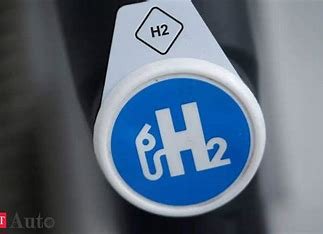In the quest for developing clean energy sources to reduce our dependence on fossil fuels, researchers at Penn State have made a surprising discovery – coal could potentially serve as a storage medium for hydrogen gas, similar to how batteries store energy. This finding addresses a significant challenge in building a sustainable energy supply chain.
Hydrogen is a clean-burning fuel with great potential for use in energy-intensive sectors such as transportation, electricity generation, and manufacturing. However, the development of a reliable and affordable hydrogen infrastructure requires efficient hydrogen storage solutions. Geologic formations have emerged as a promising option for large-scale hydrogen storage to meet fluctuating energy demands.
Coal, a well-studied and widely available resource, has been commercially used for gas production for decades. Dr. Shimin Liu, associate professor of energy and mineral engineering at Penn State, believes that coal could be the logical choice for geological hydrogen storage due to its unique properties and existing infrastructure. To explore this idea, the researchers analyzed eight types of coals from different regions across the United States to assess their sorption and diffusion potential.
The study revealed that all eight coal types exhibited significant sorption properties, with low-volatile bituminous coal from eastern Virginia and anthracite coal from eastern Pennsylvania performing exceptionally well. Depleted coalbed methane reservoirs, which have been utilized for fossil fuel extraction, appear to be suitable for hydrogen storage. Injecting hydrogen into coal causes it to adhere to the coal’s surface through a process called adsorption. These formations typically have a sealing layer of shale or mudstone that can effectively retain the hydrogen until needed.
Coal’s high carbon content and abundant small pores make it capable of storing a large number of hydrogen molecules, surpassing other non-carbon materials. The researchers developed specialized equipment to conduct experiments, as traditional pressurized equipment was inadequate due to coal’s weaker affinity for hydrogen compared to other gases.
Aside from the scientific perspective, the potential storage of hydrogen in coal could bring economic opportunities to coal mining communities, which have been particularly impacted by the energy transition. Repurposing these regions with a hydrogen infrastructure could leverage the existing expertise and skills of the workforce, creating new avenues for growth.
Moving forward, the researchers plan to focus on determining the dynamic diffusivity and permeability of coal, which influence the injection and retrieval rates of hydrogen. With abundant coal reserves, natural gas, and the necessary engineering and economic expertise, Penn State is poised to lead this research and play a pivotal role in advancing the utilization of coal as a geological hydrogen battery.
The findings open up new possibilities for clean energy storage and offer a unique opportunity to transform coal communities into hubs of sustainable energy production. By leveraging the natural attributes of coal, we can strive towards a cleaner and more sustainable future.

